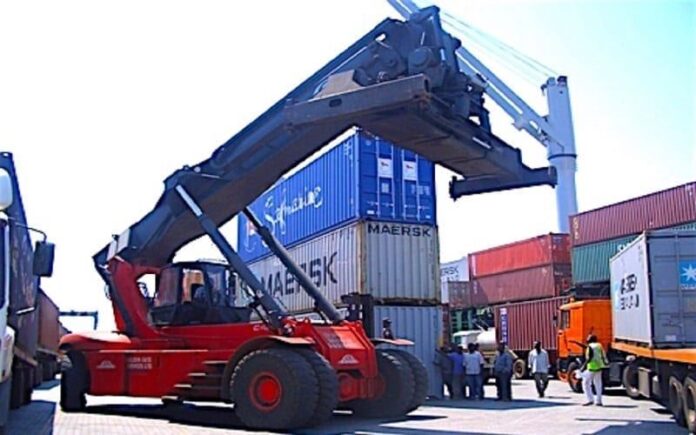A Coalition of 55 Civil Society Organizations (CSOs) in Ghana is urging the government to swiftly clear essential Family Planning (FP) commodities that have been stranded at the Tema Port for more than seven months.
These vital supplies, worth $1.6 million, were donated by the West Africa Health Organization (WAHO) and the United Nations Population Fund (UNFPA) but remain undelivered due to unpaid duties and rising demurrage fees.
The Coalition warns that, the prolonged delay is causing a national shortage of contraceptives, which could lead to an increase in unintended pregnancies, unsafe abortions, and maternal deaths.
These FP commodities, once cleared, could potentially prevent 62,728 unsafe abortions, avert 2,514 child deaths, and save 255 maternal lives.
The Coalition estimates the government could save over GHC 200 million in healthcare costs by addressing the issue promptly.
Despite Ghana’s recent launch of the Family Planning Costed Implementation Plan (GFPCIP), the stockout threatens the country’s progress towards its 2030 goals for reproductive health.
The Coalition is calling on the government to not only clear the supplies immediately but also prevent similar delays in the future.
Read the release below:
For Immediate Release
Urgent Call to Clear Family Planning Commodities Stuck at Tema Port for more than Seven Months
Accra, Ghana—23rd October 2024: A coalition of 55 Civil Society Organizations (CSOs) working in reproductive health in Ghana, is urgently calling on the government to clear essential Family Planning (FP) commodities, and other medical products, stuck at the Tema Port for over seven (7) months. This action is critical to prevent a shortage of these commodities which could significantly increase the rate of unintended pregnancies, leading to unsafe abortions and maternal mortality.
The FP commodities valued at $1,610,563 donated to Ghana by the West Africa Health Organization (WAHO) and United Nations Population Fund (UNFPA), among other medical products, have not been cleared from the port since February 2024. According to the Coalition, the delay in clearance, caused by unpaid duties and subsequent demurrage fees, has led to critical shortages of key contraceptive supplies at the central and regional medical stores and health facilities across the country.
The stockout of these essential supplies has a significant impact on national efforts to improve the health outcomes of Ghanaians, increasing the risk of unintended pregnancies and undermining efforts to improve maternal, newborn, and child health outcomes in Ghana. The Coalition, using MSI’s impact calculator, states that these FP commodities, when used by women, are estimated to avert 2,514 child deaths, 255 maternal deaths, 62,728 unsafe abortions, and 199,182 unintended pregnancies and save the government of Ghana more than two hundred million Ghana cedis in direct healthcare costs.
Ghana recently launched the Ghana Family Planning Costed Implementation Plan (GFPCIP), reaffirming the government’s commitment to ensuring that by 2030, all persons of reproductive age have equitable and timely access to quality FP information, commodities, and services in line with global FP2030 goals. However, delays in clearing essential FP commodities, leading to stockouts, cast doubt on this pledge, the African Union Agenda 2063, and the larger Sustainable Development Goals. The government’s inconsistent management of donated supplies not only undermines Ghana’s commitment to these national and global goals, but also risks damaging its international reputation and future partnerships.
Call to Action
- The Coalition is asking the government to immediately clear the FP commodities by paying the duties and accrued demurrage.
- The Coalition is urging the government to take decisive and proactive measures to prevent any future occurrence of similar delays and potential loss of donated commodities.
- The Coalition demands that a quality control assessment of the commodities be conducted once they are cleared from the port. This assessment is crucial to ensure that the use of these commodities is not detrimental to users’ health.
In conclusion, the Coalition is asking the government to prioritize the improvement of health outcomes for Ghanaians, particularly in the area of reproductive health. The Coalition is committed to working with the government and other stakeholders to ensure that the country meets its FP commitments.
For media inquiries, please contact:
- Esi Asare Prah, Advocacy Manager, MSI Ghana on 0541230140 /esi.prah@mariestopes.org.gh
- Doris Ampong, Communications Manager, ARHR on 0242259638/ d.ampong@arhr.org.gh
- Patricia Ampomah, FP2030 Youth Focal Point on 057 272 3921
-ENDORSED BY-
|
|
Source: Adomonline
READ ALSO:


